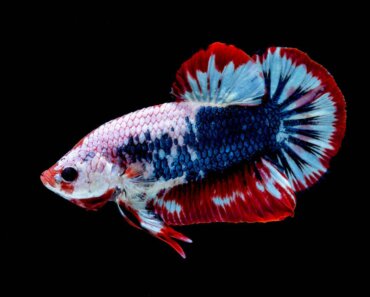In many dogs (though not all), intermittent fasting can offer a variety of health benefits, from maintaining lean body mass to reducing the risk of neurodegenerative conditions and other age-related diseases.
There’s been lots of buzz lately about the benefits of intermittent fasting for humans — and now for dogs as well. Intermittent fasting, also termed therapeutic fasting, is a pattern that includes alternating cycles of eating and fasting. But is it safe or healthy for dogs? If so, can it offer benefits for canine health and longevity?
Evolutionary factors
In truth, intermittent fasting is how dogs are evolutionarily designed to eat. Wolves and other wild canines do not have continual access to food and are naturally faced with intermittent eating schedules that depend on their ability to find and catch prey or to successfully scavenge for food.
Did you know? Research done in Yellowstone National Park revealed that wolves are well adapted to intermittent eating patterns and can thrive with long periods between meals.
Dr. Richard Patton, animal nutritionist and researcher, included similar comments in his book about the health of our canine companions, titled Ruined by Excess, Perfected by Lack. In this book, he shares that canines and other carnivorous animals “have exquisitely perfected the ability to survive with the intermittent lack of food. And in fact, they are poorly adapted to deal with constant excess, particularly with calories from starches and sugars.”
When the body is not busy working on digestion, enzymes are freed up to focus more on detoxification, reducing inflammation and repairing tissues.
What the studies say
Even beyond the necessary basics for surviving in the wild, cumulative research has shown significant health benefits arising from intermittent fasting — or said in another way, intermittent eating.
Did you know? Reducing the frequency of meals is not only helpful for maintaining a lean body weight, but also reduces the incidence of specific diseases and health problems.
For many decades, studies have reported that intermittent fasting and/or reduced calorie intake has positive effects in humans. Newer emerging reports are showing the same types of positive benefits in dogs too. Here are a couple of examples:
- A study by Mark Mattson, PhD, a neuroscience professor at the John Hopkins School of Medicine, indicates that fasting and reducing daily calorie intake can be beneficial for your dog’s neurologic health. He has published extensively on the topics of brain function and healthy aging. His studies with both animals and humans demonstrate that fasting can improve cognitive function and reduce the risk of developing neurogenerative diseases such as Alzheimer’s or Parkinson’s. Dr. Mattson also reported increased lifespans in dogs that took part in fasting studies.
- Scientists at the University of Arizona published a recent study titled “Once-daily feeding is associated with better cognitive function and health in companion dogs” in Results from the Dog Aging Project. This research team analyzed data from over 24,000 dogs, looking for links between feeding frequency and health outcomes. Their findings suggested that feeding dogs just one meal a day reduces the risk of numerous health problems and age-related diseases, including cognitive decline, dental disease, GI tract (gastrointestinal) issues, liver disease, pancreatic disorders, urinary problems, kidney disease, and cancer.
Downtime from digestion
When the body is not busy working on digestion, (i.e. the breakdown and absorption of food particles), enzymes are freed up to focus more on detoxification, reducing inflammation and repairing tissues. During this downtime from digestion, the liver is also more efficient at processing waste products and eliminating toxic load. Numerous reparative mechanisms are allowed to work better, and this helps the body regenerate.
Furthermore, periods of fasting effectively trigger the body to metabolize its fat stores for energy. Not only is this helpful to remaining lean, but losing fat means releasing toxins too. Indeed, adipose tissue (fat) is the primary storage site for toxins in the body.
Did you know? Allowing periods of downtime from digestion (i.e. fasting) promotes both a leaner and a cleaner body.
Understanding ketones
It is helpful to understand how your dog uses stored fat for energy. When his body breaks down fat to use for fuel, molecules of energy called ketones are naturally produced. Ketones are a very efficient source of energy for muscles, including the heart muscle, and for other organs too, such as the brain. In fact, some studies suggest that ketones are the preferred source of fuel for the brain. MCT oils (medium chain triglycerides) can also provide ketones, which is why this particular form of healthy fats is known to help with cognition and brain function, among other benefits.
Like humans, all dogs (wild and domestic) have the ability to utilize either glucose or ketones as a source of fuel for the body’s cells and tissues. Glucose will be readily used as the body’s first choice for fuel, if it is available. This means that if your dog is continually eating throughout the day, glucose is almost always available and his body will not have an opportunity to burn fat. Another important aspect of this scenario is that each time glucose is made available through the breakdown of carbohydrate-containing foods, insulin is required to deliver that glucose into the cells of the body. This is not so desirable, as insulin is known to be a pro-inflammatory hormone, which means that frequent releases of insulin equate to higher levels of inflammation in the body.
Did you know? When meal frequency and/or carbohydrate content are decreased in your dog’s diet, it can directly result in less inflammation in his body.
We now recognize that inflammation is associated with chronic diseases as well as degeneration in the body and advanced aging changes. By understanding this, you can see that both what you feed and how often you feed your dog can directly influence numerous health conditions, affect aging, and perhaps even longevity.
Benefits of intermittent fasting
- Elevated macrophage activity — defends the body and engulfs invaders, such as microbes or foreign substances, and mutating cells; also helpful for autoimmune conditions and cancers.
- Tissue regeneration – the process of cleaning up and removing old cells, referred to as autophagy; the body’s mechanism for degrading and removing unwanted or dysfunctional components, allowing new healthy cells to replace the old cells; can improve the immune system.
- Increased immunoglobulin/antibody levels.
- Increased natural killer cell activity – kills tumor cells and those infected with viruses.
- Reduced insulin levels.
- Prevention of neurologic diseases – study by Dr. Mattson shows fasting can benefit the brain and neurologic health.
A word of caution
Generally, fasting is only safe for adult healthy dogs. Despite its potential benefits, there are many situations and health conditions for which fasting could be harmful and is not advised.
Puppies, for example, require consistent meals and calories because they are growing. This also holds true for pregnant and lactating females. Senior dogs and very small toy breeds should avoid fasting as well.
And finally, although fasting may be beneficial for some dogs with certain health conditions, there are many illnesses or circumstances in which withholding meals would be inappropriate or harmful. So please be sure to consult with your veterinarian before considering a time-restricted eating plan, to make sure it is safe and appropriate for your dog.




























